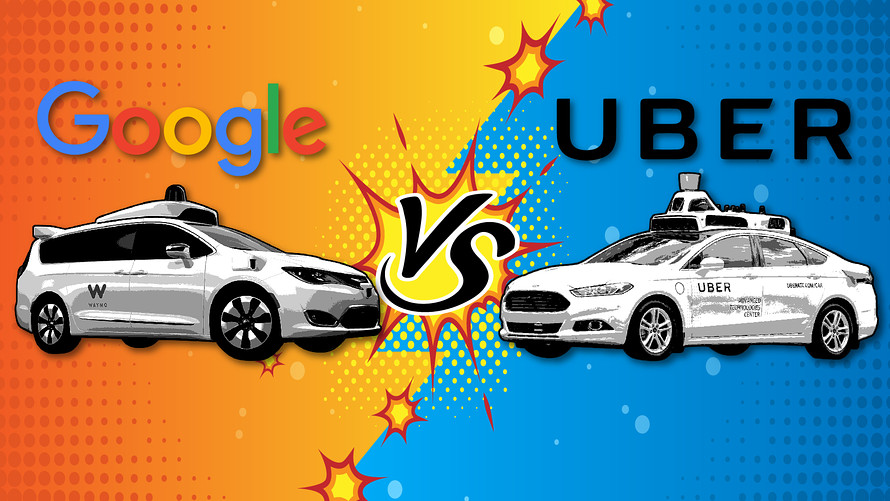Google Vs Uber
February 6, 2018 | Expert Insights

The trial between Waymo (Google) and Uber, two of world’s largest tech companies has begun in February 2018. Google has accused Uber of stealing trade secrets and indulging in corporate espionage with regards to the self-driving car technology.
Background
Uber, an American technology company, that offers ride sharing services, is also one of the most successful companies in the world.
However, a series of controversies have plagued the company in 2017. This includes claims by former employees about the working conditions within the company. A blog by a former employee Susan Fowler about the sexual harassment rampant at Uber went viral. This led to Uber firing more than 20 members of its staff and taking action against others following a review of more than 200 HR complaints that included harassment and bullying. The controversies led to the resignation of former CEO Travis Kalanick.
Waymo is a car development company that specializes in building driverless cars. It was originally founded in 2009 as part of Google’s self-driving car project. The company is currently a subsidiary of Google’s parent company, Alphabet.
In February 2017, Waymo sued Uber over allegations that the latter had stolen trade secrets. Uber has its own self-driving car subsidiary called Otto. In December 2017, further evidence has emerged that Uber allegedly engaged in a range of “unethical and unlawful intelligence collections”. This is based on a legal document that was published on December 15th, 2017. Uber has been accused of theft of competitive trade secrets, bribery of foreign officials and spying on competitors and politicians.
Analysis
Google has one key piece of evidence that it introduced to the legal proceedings which is a document by Uber’s former employee. It is a demand letter filed by the ex-Uber security manager Richard Jacobs. In the letter, he revealed that Uber had employees dedicated to spying on rival companies and that he himself had expressed concern over the tactics being used.
The trial between the two tech giants has officially commenced in February 2018. Waymo’s case against Uber in particular is about trade secrets related to Lidar (light detection and ranging). It is a key technology that enables an autonomous car to understand what is happening around it.
At the heart of the case is former Google engineer Anthony Levandowski. He is a former Google employee who stands accused of stealing 14,000 files from the company’s servers before he left to launch a self-driving truck startup called Otto that was later acquired by Uber. Waymo has noted that it became privy to Uber’s activity when an Uber employee accidentally cc-ed Waymo in a mail on an email from one of its self-driving tech vendors. Waymo began their investigation and concluded that the details in that mail resembled its own Lidar.
Waymo (Google) is making its case against Uber first and after that the latter will have a chance to present its own case. Lawyers representing Waymo compared Kalanick to Rosie Ruiz, the woman who cheated in the New York City Marathon in 1980. They have presented emails from Kalanick calling for a “pound of flesh” from Waymo and Google. Uber is expected to present its own case sometime next week.
This is the first big trial of the self-driving cars era and it is unlikely to be the last. Recently, an electric car start up called Faraday Future has accused a number of its former executives of stealing its own trade secrets. It has alleged that they used these secrets to start their own companies. The Silicon Valley is a region known for employees moving swiftly from one start up to the next and its culture could be under scrutiny because of the trial.
Assessment
Our assessment is that the trial between Uber and Google will not only form the precedent for companies working in the industry but also have relevant repercussions for the culture in Silicon Valley. The area is known for short term employment where people shift from one job to another fairly quickly and are actively poached by rival companies. It is also rare when two large companies decide to go on trial as generally such cases get settled out of court to avoid embarrassing revelations. This could further put a dent in Uber’s reputation.








Comments